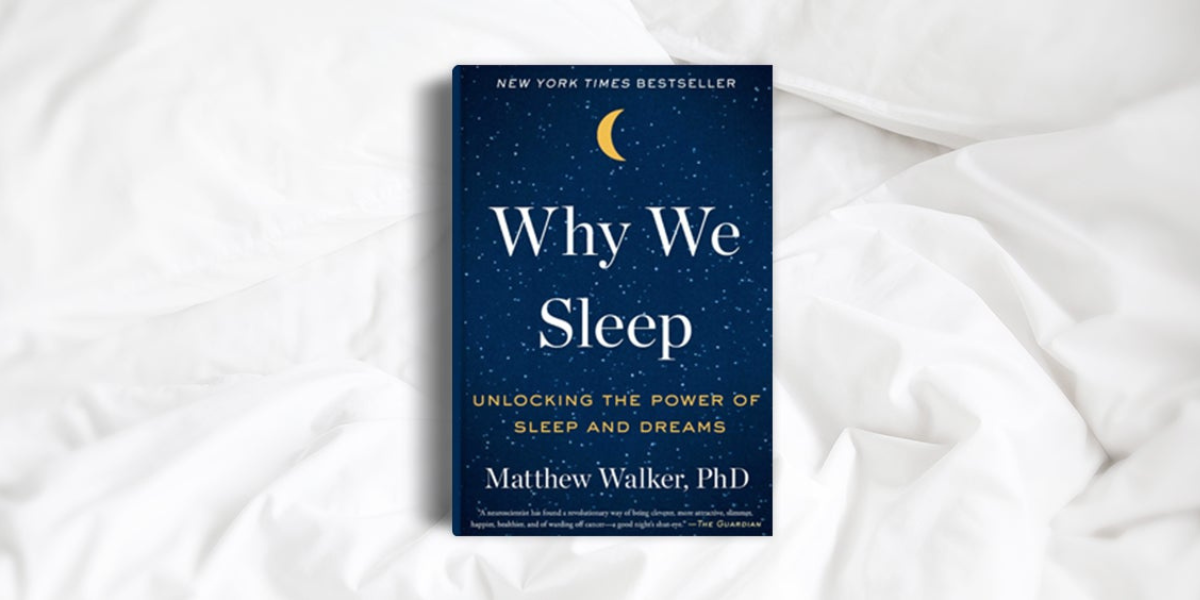The Secrets of Deep Sleep
A good night’s sleep has become a precious commodity in today's world. More so, the quality of that slumber, particularly deep sleep, has significant...
.png?width=70&height=70&name=Stark_LogoMark%20(1).png)

In this fast-paced, 'always-on' world, sleep often gets relegated to the bottom of the to-do list. Enter Matthew Walker's "Why We Sleep." Walker, a professor of neuroscience and psychology at UC Berkeley, not only unpacks the science behind sleep but also takes a hard look at the detrimental effects of modern sleep-deprived lifestyles. For anyone who's felt the burden of exhaustion, the message of this book is clear—sleep is essential, and ignoring its importance is at your own peril.
The first takeaway is perhaps the most significant—sleep is a linchpin to your well-being. When skimping on sleep, you compromise your immune system, derail your weight management efforts, and sap your cognitive prowess. It's not merely a time for rest; it's when your body performs critical maintenance and your brain consolidates memories.
The book reveals just how deeply lack of sleep can impact your daily life. Walker presents a compelling case for understanding that an investment in sleep is an investment in long-term health. From the rejuvenation of cells to combatting cancer, the list of health benefits attributed to a good night's rest cannot be overstated.
Consistency is king when it comes to sleep. Establishing a regular sleep schedule helps synchronize your internal clock, which can lead to better sleep quality. The book's insight into sleep hygiene, or the practices and routines that aim to promote better sleep, is enlightening.
Simple changes to your evening routine, such as minimizing exposure to screens and creating a relaxing pre-sleep activity, can lead to a night of more robust, restorative rest. Developing these habits takes time and dedication, but the rewards in terms of how you feel during the day are significant.
Burning the midnight oil may seem like a testament to your work ethic, but it exacts a considerable toll. Sleep deprivation impacts every facet of your waking life, from your mood to your physical abilities. The book points to some harrowing statistics—driving while tired can be just as dangerous as driving drunk.
Long-term, the risks are even more severe. Chronic sleep deprivation has been linked to a host of health issues, including obesity and a shorter lifespan. It's a striking reminder that sleep is a necessity, not a luxury, and cutting corners with it can have lasting consequences.
In this section, the book delves into the connection between insufficient sleep and chronic conditions. The evidence is compelling and concerning—diabetes, heart disease, Alzheimer's. The list of health conditions with a clear link to poor sleep is daunting.
Understanding how sleep—or the lack thereof—impacts your risk for these diseases is a powerful motivator for change. The book details the physiological mechanisms at play, shedding light on how the body's response to sleep deprivation sets the stage for illness.
The final takeaway is the light at the end of the tunnel. Walker doesn't leave you despairing; he offers a glimmer of hope. It's never too late to improve your sleep, and the book is chock-full of actionable advice.
From optimizing your sleep environment to the role of diet and exercise in promoting quality rest, the strategies are both straightforward and effective. Simple changes like regular exercise and adopting a relaxing bedtime ritual can significantly transform your sleep quality and, in turn, your life.
By recognizing the importance of sleep and making informed choices, you can lead a healthier, more vibrant life. The book serves as both a wake-up call to the dangers of sleep neglect and a handbook for transforming your sleep habits. It's time to take action and prioritize those vital hours of rest. After all, the benefits of a good night's sleep extend far beyond the pre-dawn alarm.

A good night’s sleep has become a precious commodity in today's world. More so, the quality of that slumber, particularly deep sleep, has significant...

Have you ever felt like no matter how long you sleep, it's never enough? Or found yourself dozing off during important meetings? If so, you might be...

Do you know that feeling of soreness and stiffness after an intense workout? That's your body telling you it needs rest and recovery. But did you...